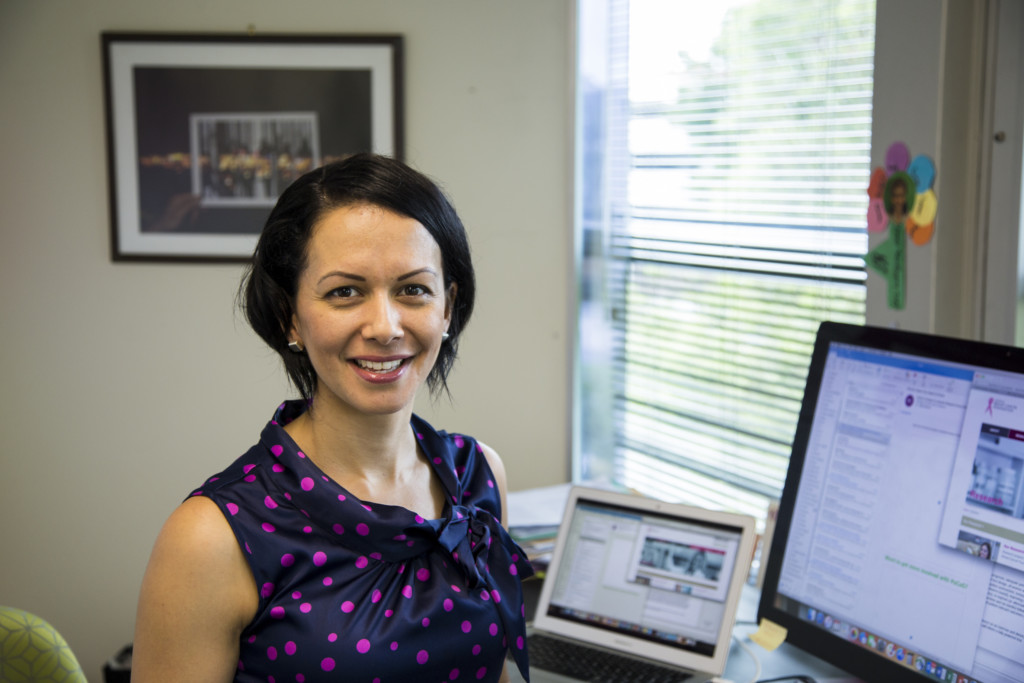 Treat
Treat
Being told that you have been diagnosed with advanced breast cancer can be very confronting, overwhelming and devastating. To help women with advanced breast cancer maintain as high quality of life as possible as they undergo treatment, a number of related interventions (such as dietary and exercise programs) have been developed; to assist with delivering these related interventions, patient materials (such as brochures) may be needed to provide information about the specific intervention, what to expect and additional resources for further support.
However, creating high-quality patient support materials can be challenging. The generated materials may differ depending on the needs, preferences and specific intervention designed for the targeted patient group. NBCF-funded researcher Associate Professor Marina Reeves, from the University of Queensland, recently led a study evaluating the feasibility and safety of a 16-week tailored exercise and dietary intervention designed for women with metastatic breast cancer. The study, published in the journal Qualitative Health Research, illustrates the highly interactive and collaborative process that is needed to generate material that is respectful and sensitive to the needs, preferences, and realities of women with metastatic breast cancer.

Associate Professor Marina Reeves
In her study, A/Prof Reeves and her team completed 23 in-depth interviews with metastatic breast cancer patients to inform the development of a booklet (called the “Support Kit”) about the tailored exercise and dietary intervention. Notably, one of the main findings of the study was that women who were experiencing metastatic breast cancer may have different perspectives and preferences to those with early disease. In particular, the interviews highlighted the substantial emotional toll of a metastatic cancer diagnosis. In light of this, the researchers decided to acknowledge the significant emotional impacts of metastatic breast cancer, prior to any intervention-specific content in the Support Kit.
Given the long-term treatment schedules and associated side effects, the researchers also acknowledged the difficulty of goal setting for some patients and the need to be sensitive to this perspective. In the Support Kit, the researchers acknowledged that while goal setting may provide some structure to help the participant stay on track, such a structure may not be feasible or desirable by all women. The Support Kit also encouraged the program participants to explore the approach that might work best for them.
A/Prof Reeves said that the input of women living with metastatic breast cancer was invaluable to the development of the Support Kit.
“With such little research in this area to date, it was vital that we listened to the voices of the women living with metastatic breast cancer to understand their lived realities, their needs, experiences and priorities,” said A/Prof Reeves.
“Without this engagement and co-design of the intervention, I don’t think the intervention would have been as effective or beneficial. It truly was a collaborative effort.”
NBCF is proud to provide funding for this project.
More News Articles
View all News Treat
Treat

